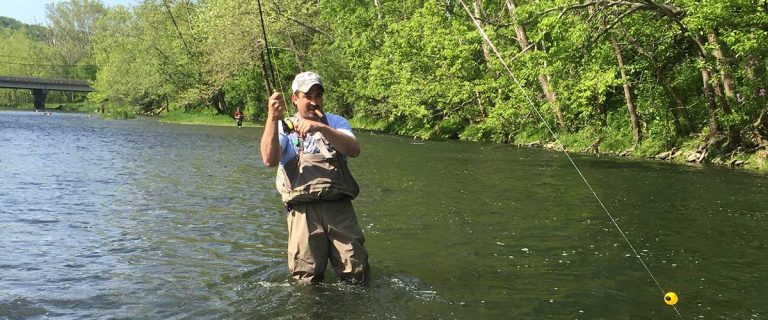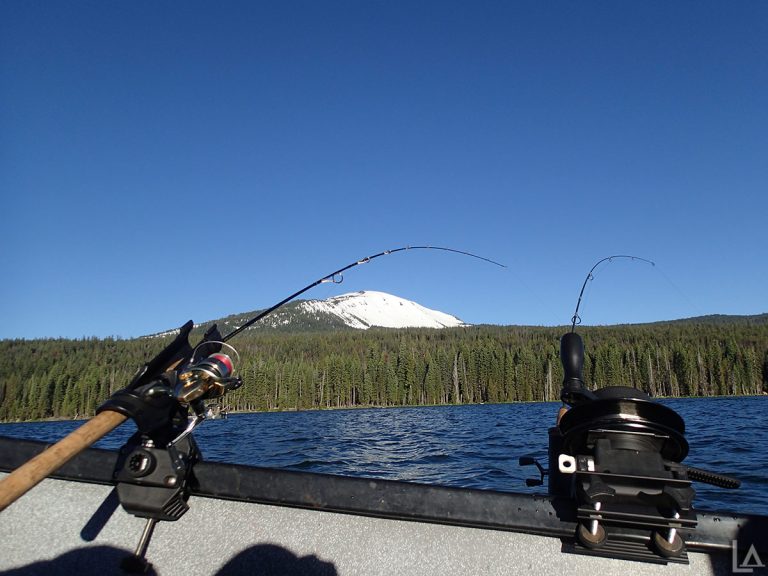Are you an out-of-state hunter excited to discover Tennessee’s rich wildlife and stunning landscapes? Before you pack your gear for the Volunteer State, it’s essential to grasp the details of non-resident hunting licenses. This comprehensive guide will provide you with crucial information regarding:
- License Types: Explore various non-resident hunting licenses available in Tennessee, tailored to different hunting needs.
- Pricing Information: Understand the costs associated with each type of non-resident license for the 2025 season.
- Purchasing Options: Learn how to obtain your license easily, whether online or in-person.
This guide ensures that you are well-prepared for your hunting adventure in Tennessee!
Why Tennessee is a Hunter’s Paradise
Tennessee’s diverse landscapes, ranging from the majestic Appalachian Mountains to the fertile Mississippi River bottomlands, create a haven for hunting enthusiasts. With a thriving deer population estimated between 900,000 and 1 million, the state offers abundant opportunities for hunters to secure their tags. In fact, during the 2023-2025 season, a total of 152,738 deer were harvested across Tennessee, with approximately 60% being male and 40% female according to the Tennessee Wildlife Resources Agency (TWRA). Whether pursuing white-tailed deer or wild turkey—where 31,647 were harvested in spring 2025—or small game, Tennessee’s well-maintained habitats and rich biodiversity make it a top choice for hunters nationwide.

Beyond its wildlife, Tennessee captivates with its breathtaking scenery, featuring lush hardwood forests alive with songbirds, rolling hills dotted with wildflowers, and expansive wetlands teeming with life. These picturesque settings not only enhance the hunting experience but also attract nature lovers eager to explore the great outdoors. The state’s commitment to wildlife conservation ensures sustainable hunting practices; for example, there is a statewide antlered bag limit of two deer per hunter and strict regulations against hunting albino deer (eRegulations). This dedication preserves this cherished tradition for future generations while allowing hunters to enjoy their pursuits responsibly. For detailed hunting regulations and permits, visit the TWRA website.
Understanding Non-Resident Hunting Licenses in Tennessee
As a non-resident hunter, obtaining the correct license is crucial before you embark on your Tennessee hunting adventure. The Tennessee Wildlife Resources Agency (TWRA) provides a variety of licenses tailored to meet different hunting needs and durations. Familiarizing yourself with these options is essential for ensuring a successful and enjoyable hunting experience.
Types of Non-Resident Hunting Licenses
The following table summarizes the various non-resident hunting licenses available in Tennessee for the 2025 season, including their prices and coverage:
| License Type | Price | Validity | Coverage |
|---|---|---|---|
| Annual Hunting License | $251 | One full year from purchase | General hunting of small game species |
| Annual Big Game Supplement | $300 | One full year from purchase | Required for big game hunting (deer, turkey) |
| 7-Day Hunting License – All Game | $214 | 7 consecutive days | All game hunting |
| 3-Day All Game License | $100 | 3 consecutive days | All game hunting |
| Hunting and Fishing Combination License | $450 | One full year from purchase | Hunting and sport fishing privileges (excluding trout) |
| Non-Resident Junior Hunt – All Game | $41 | One full year from purchase | For young hunters aged 13-15 |
Additional Permits and Fees
Depending on your specific hunting plans, you may also need to acquire additional permits. The following table details these permits along with their associated costs:
| Permit Type | Price | Coverage |
|---|---|---|
| Waterfowl Permit | $37 | Required for waterfowl hunting |
| Federal Duck Stamp | $25 | Required for hunting migratory waterfowl |
| Wildlife Management Area (WMA) Permit | $61 | Required for hunting on WMAs |
Eligibility Requirements
To obtain a Tennessee non-resident hunting license, applicants must be at least 13 years old and provide valid identification such as an out-of-state driver’s license or passport. A Social Security number is typically required for license processing. Non-residents born in Tennessee may qualify for special “Native Tennessean” licenses at resident rates.
License Expiration and Renewal
It is important to understand that annual licenses and permits remain valid for 365 days from the date of purchase. For instance, if you buy an annual license on February 1, it will expire on February 1 of the following year. Some permits, like the Migratory Bird Permit, have fixed expiration dates regardless of when they are purchased.
Renewal eligibility for existing licenses is available within 10 days of expiration. Always verify the effective and expiration dates of your licenses before making a purchase to avoid any issues while hunting.
How to Purchase Your Non-Resident Fishing License in Tennessee
Obtaining a fishing license in Tennessee is a straightforward process, with multiple options available to suit your convenience.
Online Purchase:
You can easily purchase your fishing license through the Go Outdoors Tennessee platform. This online service allows for quick transactions without needing in-person visits. Licenses purchased online are valid from the date of purchase until the last day of February in the following year. For more information, visit Go Outdoors Tennessee.
In-Person Options:
- TWRA License Agents: Numerous sporting goods stores, hardware stores, and marinas across the state are authorized to sell fishing licenses.
- TWRA Regional Offices: For those who prefer face-to-face assistance, you can visit one of the four TWRA regional offices to buy your license directly. A complete list of locations can be found on the TWRA website.
Phone Orders:
If you prefer to order by phone, simply call 1-888-814-TWRA (8972) to purchase your license using a credit card. A processing fee may apply.
Pro Tip: When purchasing online or over the phone, be aware that there may be a small processing fee added to the cost of your license.
Understanding Fishing License Types and Requirements
In Tennessee, anyone aged 13 and older must have a valid fishing license. Non-resident licenses cost $50 annually, while an annual permit that includes trout fishing is $99. For short-term anglers, three-day permits are available for $20.50 (or $40.50 including trout).
Additionally, certain areas like Gatlinburg require special permits for fishing. Ensure you check local regulations before heading out. For detailed information about fishing regulations and special permits, visit Take Me Fishing – Tennessee.
Planning Your Tennessee Fishing Trip
Now that you’re familiar with the licensing requirements, here are some essential tips to enhance your fishing experience in Tennessee:
Research Fishing Seasons
Tennessee’s fishing seasons vary significantly depending on the species and region. It is vital to consult the Tennessee Wildlife Resources Agency (TWRA) website for the most current information on season dates and regulations. For instance, notable changes for the 2023-24 season include updated bag limits for certain species aimed at promoting sustainable fishing practices. Being informed about the specific fishing seasons for your target species will not only improve your chances of a successful catch but also ensure compliance with local laws.
Scout Locations
Before embarking on your fishing trip, utilize online resources and maps to identify promising fishing spots. Popular locations such as Old Hickory Lake and Dale Hollow Reservoir are renowned for their abundant fish populations. Familiarizing yourself with the terrain and potential fishing areas can greatly enhance your overall experience. Websites like Fishbrain or local fishing forums can provide insights into recent catches and local tips from fellow anglers.
Know the Regulations
Understanding local fishing regulations is crucial for both compliance and conservation efforts. Familiarize yourself with bag limits, legal fishing methods, and any specific regulations pertaining to your target species. For example, certain areas may require additional permits or have restrictions on specific bait types. This knowledge not only helps you avoid fines but also supports sustainable fishing practices that protect aquatic ecosystems.
Book Accommodations Early
During peak fishing seasons, popular areas can fill up quickly. To secure a comfortable place to stay, it is advisable to book your accommodations well in advance. Consider looking for lodges or cabins that cater specifically to anglers, as they often provide additional amenities such as equipment rentals and guided tours.
2025 Deer Hunting Season Dates in Tennessee
For the 2025 deer hunting season, the following dates are established for various hunting methods in Tennessee. It is essential for hunters to be aware of these dates to plan their activities accordingly.
- Archery Season: August 23-25, 2025 (private land and select Wildlife Management Areas only)
- Young Sportsman Season: October 26-27, 2025, and January 11-12, 2025
- Archery Season: September 28 – November 8, 2025
- Muzzleloader and Archery: November 9-22, 2025
- Gun, Muzzleloader, and Archery: November 23, 2025 – January 5, 2025
For more detailed information on these dates and regulations, visit the Tennessee Wildlife Resources Agency (TWRA).
Bag Limits and Antler Requirements
For the 2025 season, the TWRA has implemented zone-based hunting requirements that dictate bag limits for antlered deer:
- Hunting Unit:
- Antlered Deer Limit: Two antlered deer (1 per day)
- Daily Limit: Not to exceed two for the entire season
- CWD Units:
- Three antlered deer with no daily limit specified.
Hunters must check in all harvested deer through the online portal or at designated physical stations. For more information on Chronic Wasting Disease (CWD) management and regulations, visit CWD in Tennessee.
Additional Regulations and Considerations
Understanding the regulations surrounding fishing licenses is crucial for both residents and non-residents. Here’s a breakdown of key considerations that every angler should keep in mind.
Hunting on Private Property
For non-residents, obtaining a hunting license allows you to hunt on private property, provided you have the landowner’s permission. It is essential to secure written consent from the landowner to respect their property rights and avoid any legal issues. This step not only fosters good relationships with landowners but also ensures compliance with local laws.
Wildlife Management Areas (WMAs)
Fishing in Wildlife Management Areas (WMAs) requires a specific WMA permit. These areas are designed for wildlife conservation and offer excellent fishing opportunities. Regulations can vary significantly between WMAs; therefore, it is vital to check the specific rules applicable to each area before planning your trip. This diligence helps protect the environment while enhancing your fishing experience.
Quota Hunts
In Tennessee, quota hunts are available for certain species, necessitating a separate application process. These hunts are strategically implemented to manage wildlife populations effectively while providing anglers with unique opportunities. Always consult the Tennessee Wildlife Resources Agency (TWRA) website for up-to-date details on application dates and requirements. Staying informed is key to maximizing your hunting opportunities.
Resources for Non-Resident Hunters
To ensure a successful fishing trip, consider utilizing these valuable resources:
- TWRA Website: This official site provides comprehensive information on licensing, regulations, and fishing opportunities in Tennessee. It is an essential resource for both new and experienced anglers (GoOutdoorsTennessee).
- Hunter Education Courses: Completing a hunter education course is highly recommended for safety and compliance. The TWRA website lists available courses and certification options tailored for non-residents.
- Hunting Clubs and Guides: Joining a local hunting club or hiring a guide can significantly enhance your experience. These resources provide valuable insights into local fishing practices and hotspots, making your trip more fruitful.
- Conservation Efforts: By purchasing a fishing license, you contribute directly to wildlife conservation initiatives in Tennessee. These funds play a vital role in maintaining habitats and ensuring sustainable fish populations, allowing future generations to enjoy the sport.
Additionally, all anglers over 13 years old must have a valid fishing license to fish in Tennessee waters. Licenses can be purchased online through GoOutdoorsTennessee.com, via TWRA’s “On the Go” app, or at various approved vendors across the state. Special permits may be required for certain bodies of water or species like trout; thus, checking local regulations before heading out is crucial.
Conclusion: Your Gateway to Tennessee’s Hunting Treasures
Investing in a non-resident hunting license is your ticket to experiencing Tennessee’s rich hunting heritage. From the thrill of tracking a trophy buck in the Cumberland Plateau to the challenge of bagging an elusive wild turkey in the rolling hills of Middle Tennessee, the adventures are endless.
By purchasing a license, you’re not just gaining access to prime hunting grounds – you’re also contributing to wildlife conservation efforts that ensure these opportunities remain available for future generations.
So, gear up, secure your license, and get ready to create unforgettable memories in Tennessee’s great outdoors. Happy hunting!
Can I purchase a non-resident hunting license online?
Yes, you can easily purchase your non-resident hunting license online through the TWRA website or the Go Outdoors Tennessee platform.
Do I need to complete a hunter education course if I have a hunting license from another state?
If you were born on or after January 1, 1969, you must complete a hunter education course recognized by the TWRA before purchasing a hunting license in Tennessee, regardless of your license status in other states.
Are there any age restrictions for non-resident hunting licenses?
Non-residents age 13 and older must purchase the appropriate hunting licenses to hunt legally in Tennessee. Those under 13 may hunt without a license but must be accompanied by an adult at least 21 years old who has a valid hunting license.
Can I hunt on private property with a non-resident hunting license?
A non-resident hunting license allows you to hunt on private property with the landowner’s permission. However, it’s essential to obtain written permission from the landowner and respect their property rights.
How long is a non-resident hunting license valid?
The validity of a non-resident hunting license depends on the type of license purchased. Annual licenses are valid for one year from the date of purchase, while one-day licenses are valid for a single day. Lifetime licenses, as the name suggests, are valid for the lifetime of the license holder.







